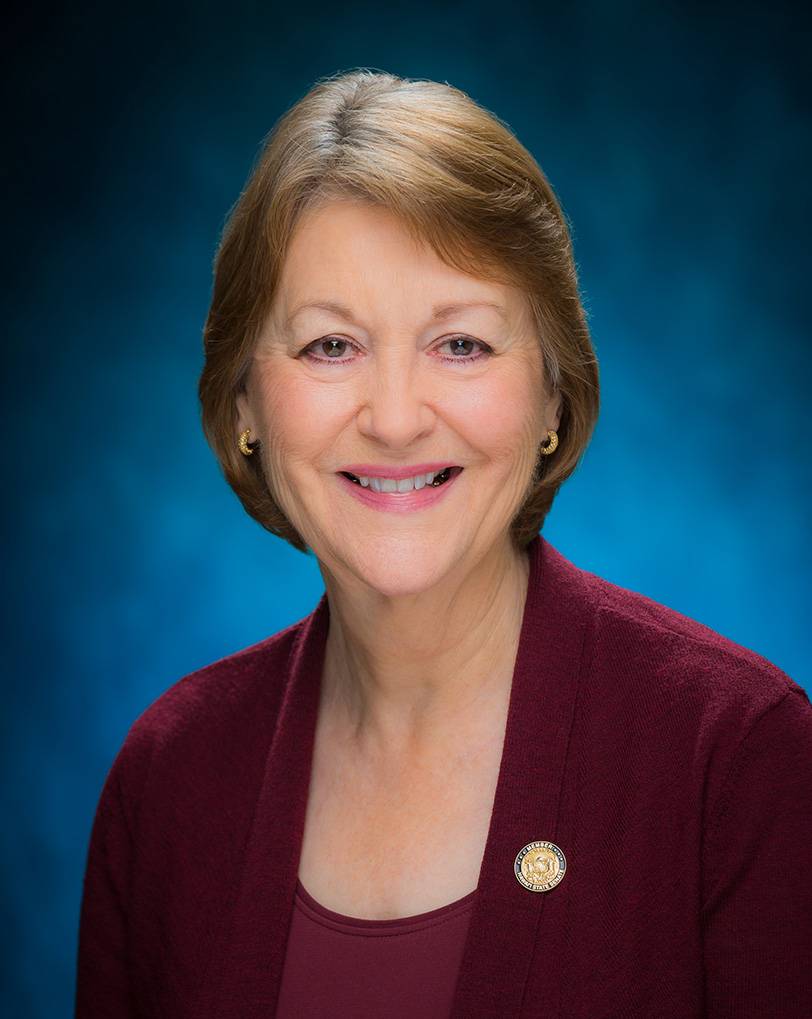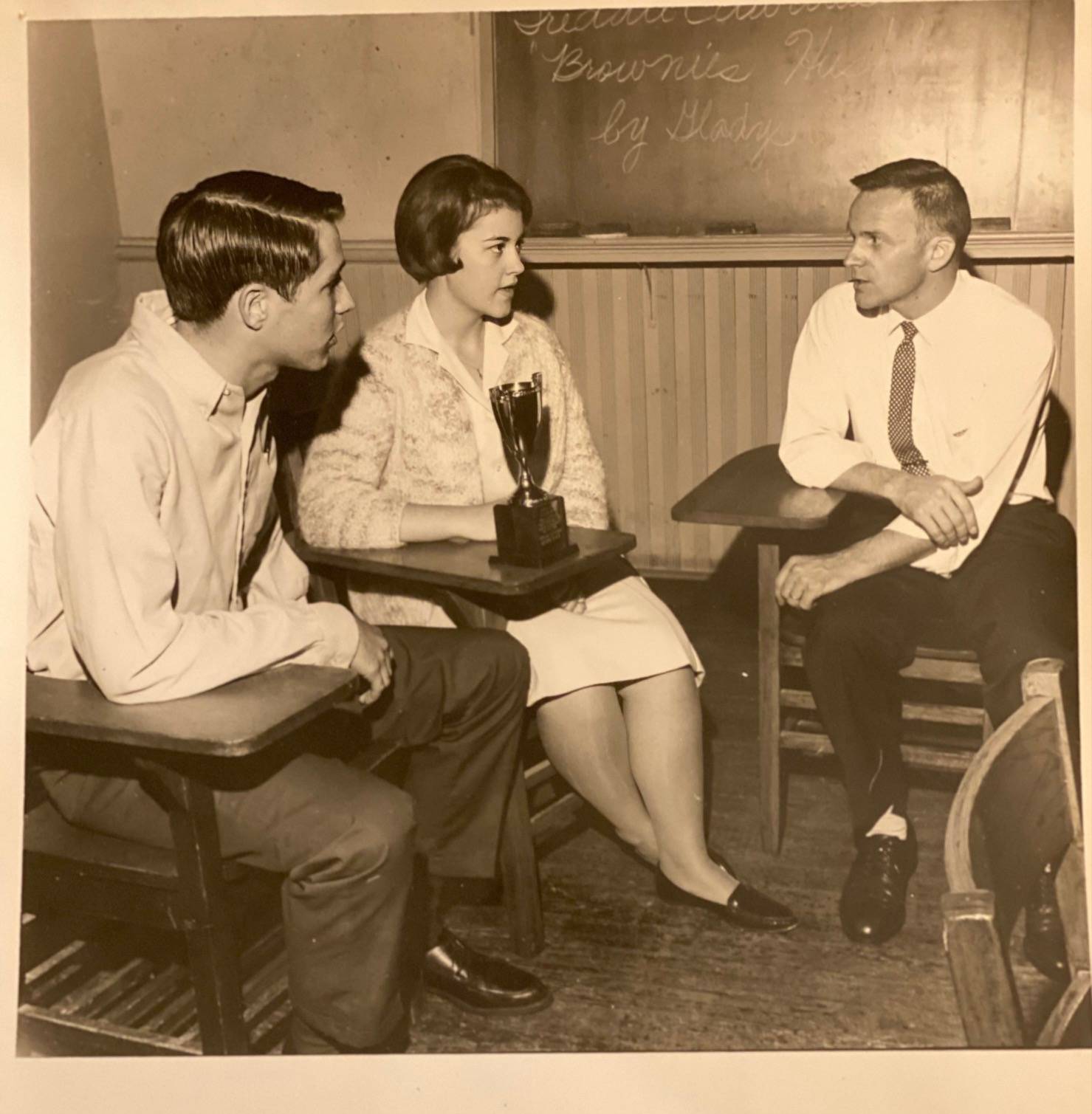Brian Hudgins | July 1, 2021

A very slim margin of defeat provided Rosalyn “Roz” Hester Baker (B.A. ’68) insight into the tools she needed for eventual victory.
In 1986, the El Campo native was six years into her residency in Hawaii. She and her husband, Vaughn, worked as small business owners when Roz Baker decided to run for Hawaii’s House of Representatives. She lost by six votes.
There was no lengthy recount. “I was bummed that I had lost, but it didn’t deter me,” Baker says. “I learned the importance of walking house-to-house and being part of organizations in the community.”
As Baker became more established in the Maui community, her next election resulted in victory. She served in the Hawaii House of Representatives from 1988-93 before serving as the Senate majority leader in 1993 and 1995-96.
Now a Hawaii State Legislator for over 30 years, Baker represents the 6th Senate District. In her official biography she cites the defining moment that sparked her interest in government when, as a student at Texas State University, she became involved in the movement to lower the voting age to 18. This interest led to a job with the National Education Association (NEA) in Washington, D.C. She would go from chair of the Youth Franchise Coalition to being named a Government Relations Specialist which impacted the ratification of the 26th Amendment in July 1971 giving 18 year-olds the right to vote.
“I’m always a little disappointed when folks aren’t as passionate about civic engagement as I am. Voting and making your voice heard in that way is so important — we’ve just seen that playing out in our recent elections. Trying to keep segments of our communities from voting is so wrong,” Baker says.
Maui County is spread out over three inhabited islands and two uninhabited islands, the necessity of having both plane and ferry access created some unique challenges in 2020. “We had just upgraded our bandwidth into the state capitol (before COVID-19), so we were better situated to have people work remotely,” Baker says. “We were still able to have people participate. I don’t know what we would have done without that bandwidth.”
It was not Baker’s first experience dealing with a sudden work environment change. She and her husband run two retail shops that rely on visitors and tourists. “The first day we opened a store in Kapalua, the pilots went on strike,” Baker says. “World happenings affect Hawaii in a big way. Pilots were on strike; no visitors were coming, and no tourist dollars were coming.”
Baker’s district includes the cities of Lahaina, Kapalua, and Wailea. The rural areas of the district support a variety of crops. “For a number of years, we had robust sugar fields,” Baker says. “Now a lot of those farmers are in coffee. We also have pineapple and some smaller vegetable farms.”
She does miss some things about her native state. “I still have some wonderful friends in that part of Texas, so I definitely miss them; of course I miss the cuisine. The good Mexican food and barbecue (we have some here in Hawaii of course but not quite the same), the bluebonnets, Indian paintbrushes and other wildflowers in the spring,” she said. In 1995, Baker was named a Texas State Distinguished Alumna. “I am partial to Hawaii’s weather — not as muggy as Texas because of our trade winds. I’d love to tour the campus one of these days. I’ve seen pictures of how it has expanded and I’m sure I wouldn’t be able to find my way around. At least Old Main is still a landmark!”

She credits Texas State for providing an engaging environment that sharpened her communication skills. “I was there when LBJ (Lyndon B. Johnson) was the U.S. president,” Baker says. “I had great professors on the political science and government side. I was on the debate team. I did a lot with that and public speaking. It taught me how to do research and argue pros and cons.”
The Hawaii State Senate debates during the past year included the need to adjust the rules to accommodate health needs. Some members who had compromised immune systems or were taking care of folks couldn’t afford to be in crowds.
Despite the challenges, Baker and her peers picked up knowledge that will be helpful the rest of this year and beyond. “Some lessons we learned about technology will be incorporated moving forward,” Baker says. “Even in rural areas of Oahu, it is hard to get to the state capitol. It (technology) gives us a greater ability to make sure all voices are heard.”
Share this article
For more information, contact University Communications:Jayme Blaschke, 512-245-2555 Sandy Pantlik, 512-245-2922 |
